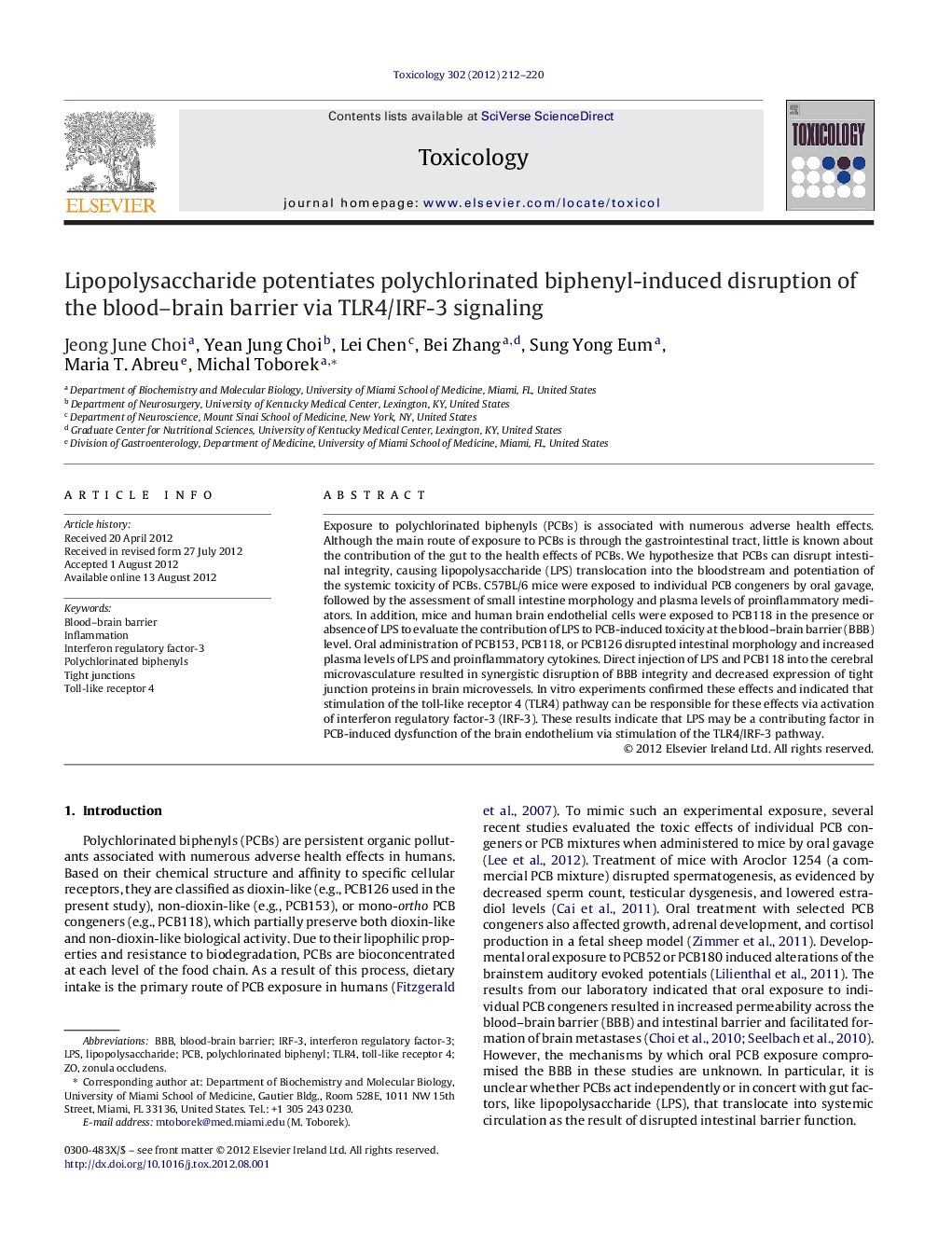| Article ID | Journal | Published Year | Pages | File Type |
|---|---|---|---|---|
| 2595719 | Toxicology | 2012 | 9 Pages |
Exposure to polychlorinated biphenyls (PCBs) is associated with numerous adverse health effects. Although the main route of exposure to PCBs is through the gastrointestinal tract, little is known about the contribution of the gut to the health effects of PCBs. We hypothesize that PCBs can disrupt intestinal integrity, causing lipopolysaccharide (LPS) translocation into the bloodstream and potentiation of the systemic toxicity of PCBs. C57BL/6 mice were exposed to individual PCB congeners by oral gavage, followed by the assessment of small intestine morphology and plasma levels of proinflammatory mediators. In addition, mice and human brain endothelial cells were exposed to PCB118 in the presence or absence of LPS to evaluate the contribution of LPS to PCB-induced toxicity at the blood–brain barrier (BBB) level. Oral administration of PCB153, PCB118, or PCB126 disrupted intestinal morphology and increased plasma levels of LPS and proinflammatory cytokines. Direct injection of LPS and PCB118 into the cerebral microvasculature resulted in synergistic disruption of BBB integrity and decreased expression of tight junction proteins in brain microvessels. In vitro experiments confirmed these effects and indicated that stimulation of the toll-like receptor 4 (TLR4) pathway can be responsible for these effects via activation of interferon regulatory factor-3 (IRF-3). These results indicate that LPS may be a contributing factor in PCB-induced dysfunction of the brain endothelium via stimulation of the TLR4/IRF-3 pathway.
